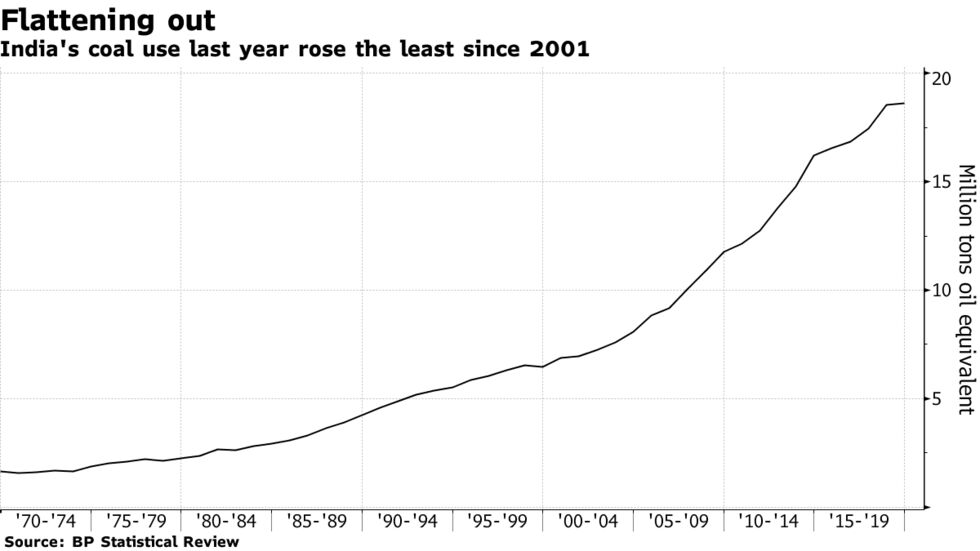ndia must stop building coal infrastructure and focus on renewable power generation to aid the global fight against climate change and lift its citizens out of poverty, United Nations Secretary-General Antonio Guterres said. The nation, the biggest coal consumer after China, must invest in a “clean, green transition” as it recovers from the Covid-19 pandemic, Guterres said at an event organized by New Delhi-based environment advocacy group TERI. It must also end fossil-fuel subsidies, which are about seven times as high as those for clean energy, he said.

The Group of 20 nations including India must place a price on carbon pollution and commit to no new coal after 2020, Guterres said. He said he was concerned to learn that G-20 nations allocated more resources to fossil fuels than clean energy for an economic recovery and that some countries were “doubling down on domestic coal and opening up coal auctions.” India plans to auction 41 coal mines later this year.
“Investing in fossil fuels means more deaths and illness and rising healthcare costs,” Guterres said. “It is, simply put, a human disaster and bad economics.”
The government is making more pro-renewable policies that are already weighing on coal power plants. Average utilization of these plants was 48% in the first four months of the fiscal year that began in April, compared with 61.3% a year earlier, according to the Central Electricity Authority. Half of the country’s coal power capacity will be uncompetitive in 2022, rising to 85% in 2025, Guterres said.
Renewable power, which can create three times more jobs than fossil fuel power plants, can address India’s top priorities of alleviating poverty and giving energy access to nearly 64 million citizens that still lack it, the UN chief said. “Like all countries, India is at a crossroad,” he said. “Despite the significant challenges the country faces in bringing shared prosperity to its population, it has in many ways embraced clean technology and a sustainable energy future.”
